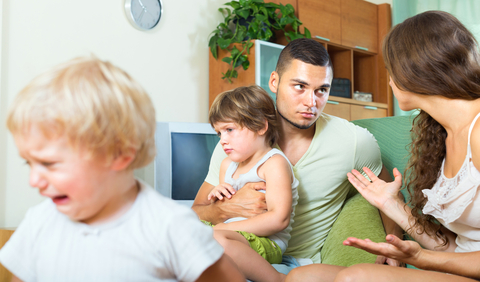
Our society is ever-changing; presenting us with advanced technology, efficient ways to connect globally, and much more. However, along with the pros, new challenges have emerged. You might be able to make a lengthy list of differences between your upbringing and that of your children.
May is Mental Health Awareness Month and on May 5th we focused on Children’s Mental Health Awareness Day. During this time we highlight the importance of children’s mental health as an essential concept for healthy adolescent development. However, it is important to acknowledge this topic as an everlasting effort. The big personalities of the little ones in our community matter in major ways!
As a parent, you’ve probably envisioned all the joys of supporting your child’s milestones. Creating a healthy structure is vital to the critical periods of an individual’s development; infancy, childhood, and adolescence. What are the desired values and beliefs you wish to instill in your child? How might your family dynamics present teaching opportunities, modeling of appropriate behavior and healthy relationships?
The first union a child is most familiar with is the bond that comes before. The relationship between parents is strongly correlated to a child’s development (i.e. medical and mental health, social abilities, autonomy, etc.). Whether a couple’s relationship is analyzed in depth by research or explored visually by the illustration of a family tree, patterns of personality and bonds will present.
Adolescent opposition, misconduct, and/or depressive symptoms can place stress on a couple’s partnership. You might’ve already accessed the internet’s grand amount of parent strategy resources; while also doing your best to collaborate with school professionals. Well, let’s make it clear, any effort to support your child’s mental wellness is a successful step forward!
So, how does your child’s mental health connect to parental relationships?The organization of a family system can be supported best by the unit’s collaborative efforts in goal-setting, communication patterns and formulating healthy subsystems. Although, there’s variance around types of families; the product of a healthy, functioning system must also include boundaries, alliance, rules, and hierarchy.

The family can be considered one of society’s launching pads for children. The web of a child’s interrelationships begin with the pairing of two individuals’ status as a couple, partnership, and/or co-parents. This primary unit as part of the larger family system, is a child’s initial model of socialization. The interactions within the living environment impact adolescent mental wellness and functioning.
It is mentioned by research that the parental relationship represents a key element in determining the quality of family life. As a significant component, it is healthy to assess partnerships supporting a child’s upbringing. Would you and your spouse benefit from parent-focused sessions? Perhaps thoughts of having a baby and in need of couples counseling? Your parent-relationship might differ and instead, present a need for counseling related to co-parenting.
It all goes back to the idea of “the foundation”. A combination of elements such as personality, beliefs, and the communication style each partner brings to the couple’s subsystem, plants roots for a child’s trajectory of functioning. The next time your child displays a high or low emotional state, ask yourself, who in the family does your child present most similar to? Are they mirroring dysfunctional communication styles, represented in the parental marriage? Any functional behaviors such as accountability, empathy, etc.?

It’s without a doubt parents pass their children the torch of life. So, what are a few healthy functionalities of a parental relationship? Many sources seem to all point towards similar mentions of communication, consistency, and caring. Unlike the thought-provoking question,
‘which came first, the chicken or the egg’, the relationship between parents is the critical start for a child’s mental and physical development.
Although, the formula for an uplifting parent-child relationship includes one-on-one time it isn’t just moments of baking in the kitchen with mom; or playing catch with dad. Children’s mental health is much reliant on guardians’ modeling healthy interrelationships. In the melting pot that is our society, culture and religious beliefs also have a fair share of impact. Family traditions culturally sculpt types of relationships, boundaries, rules, values, etc.
There’s no unified rulebook for parenting. Although, it is significant to remember parental relationships are guided by cycles of interactions and experiences. General Systems Theory outlines the idea of the interrelatedness of nature and our universe; one thing affects another. The stability within a relationship maintained between parents/ guardians is truly the brains behind the operation. It is the first domino set in place for a line of motion.
With the intent of raising healthy, well-functioning, and successful children assess the starting line; that is the parental partnership!
Looking to address the issues in your relationship? Reach out to Milestones at (443)574-4295 or contact us here.

